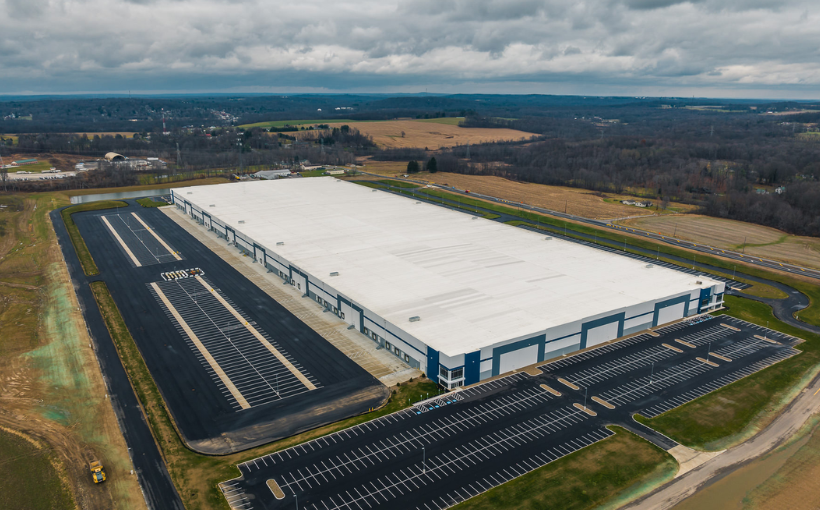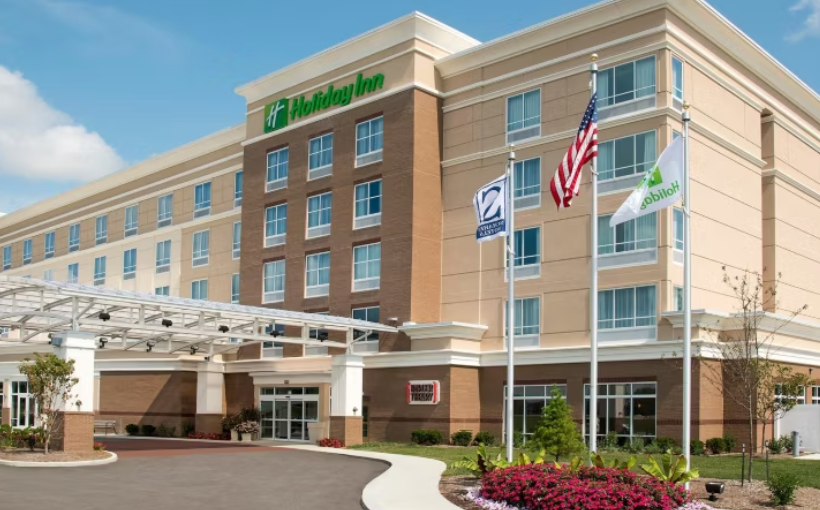Marcus & Millichap, a leading commercial real estate brokerage firm, recently closed the sale of a Walgreens property in Chicago, Illinois for $2.1 million. The 13,000-square-foot building is located at 4704 S. Halsted St.
According to Sean Sharko, senior managing director at Marcus & Millichap who represented the seller along with Austin Weisenbeck, “Walgreens has publicly announced that about 25% of their retail locations are not performing well and they will be evaluating their locations over the next few years.” Despite this announcement from Walgreens, Sharko believes that the overall desirability and prime location of this particular property make it an attractive investment opportunity.
The buyer was a local investor completing a tax-deferred exchange (also known as a “1031 exchange”) and paid all cash for the property with post-closing financing already secured. Built in 1993 and situated less than one mile from Interstate-90 on South Halsted Street near other popular retailers like Dunkin’ Donuts and grocery stores anchored by major chains such as Jewel-Osco or Mariano’s Fresh Market; this Walgreens location has been operating successfully since its construction nearly three decades ago.
With just under five years remaining on its lease agreement which includes corporate guarantee protection; investors can feel confident in both current income potential as well as future re-leasing opportunities should Walgreen’s decide not to renew upon expiration.
In summary: Marcus & Millichap recently sold a net-leased Walgreens store in Chicago for $2.1 million through senior managing director Sean Sharko and Austin Weisenbeck representing the seller -a limited liability company- while also securing an all-cash payment from local buyers using post-closing financing options after conducting research into how approximately one-quarter (25%)of these retail outlets may be underperforming according to public statements made by representatives working within Walgreens. Despite this, Sharko remains confident in the overall appeal of this property due to its prime location and desirable real estate features such as being situated near a major highway and other popular retailers like Dunkin’ Donuts or grocery stores anchored by well-known chains like Jewel-Osco or Mariano’s Fresh Market. Built in 1993, the store has been operating successfully for almost thirty years with just under five years remaining on its lease agreement which includes corporate guarantee protection -providing investors with both current income potential and future re-leasing opportunities should Walgreen’s choose not to renew upon expiration.Keystone
Switzerland is an attractive place for multinational companies because of low taxes, but also because it offers political stability.
This content was published on November 17, 2009 – 16:50
The country ranks among the top ten most competitive economies worldwide according to several international rankings.
But Switzerland faces increasing competition from countries that are trying hard to attract foreign firms through tax incentives.
In recent months Swiss cantons have come under pressure from neighbouring Germany which accuses them of unfair practices aimed at luring away German businesses across their common border.
Germany’s finance minister Peer Steinbrück has called Switzerland “a fiscal oasis” while his French counterpart Christine Lagarde said her country would take action against Swiss cantons offering special deals if they were found guilty of poaching French firms.
Austria too is considering legal steps against Liechtenstein over alleged tax fraud involving Austrian citizens who had stashed away money there – similar accusations made by Germany earlier this year triggered a diplomatic row between Berlin and Bern lasting several weeks until mid-March when both sides agreed on new rules governing cooperation in cases involving suspected tax dodgers hiding assets abroad.
Tax havens?
Critics accuse Switzerland – along with some Caribbean islands such as Bermuda or Barbados –of being one big offshore financial centre where multinationals can save billions of dollars in taxes.
But the Swiss government and business leaders reject such allegations, arguing that Switzerland is a competitive economy with a stable political system and an efficient infrastructure.
They also point out that foreign firms are not given preferential treatment compared with domestic companies. Instead they say multinationals pay their fair share of taxes on profits made in Switzerland.
The Organisation for Economic Cooperation and Development (OECD) has acknowledged these arguments but it still put Switzerland on its “grey list” of countries which have yet to fully implement international standards against tax fraud or evasion. The OECD removed the country from this list earlier this year after Bern signed new treaties governing cooperation in cases involving suspected tax dodgers hiding assets abroad.
In addition, Swiss banks agreed to relax banking secrecy rules when dealing with foreign clients – under certain conditions – paving the way for negotiations between Bern and other governments over double taxation agreements as well as information exchange accords – two key elements sought by Germany, France or Britain among others seeking better access to bank data held by Swiss financial institutions about their citizens’ accounts abroad
Swiss cantons
Tax competition within Switzerland is another issue often raised by critics who accuse some cantons of offering special deals aimed at attracting businesses away from neighbouring regions across national borders. Cantonal authorities deny any wrongdoing saying they respect federal laws regulating corporate taxation practices throughout the country’s 26 regions known as cantons..
However there are indications that some parts may be more attractive than others because they offer lower corporate taxes rates than elsewhere: In recent years several multinational firms have moved headquarters or production facilities within Europe into low-tax areas such as Zug, Schwyz or Appenzell Outer Rhodes where local authorities levy no more than eight per cent income tax on company profits while other places charge up to 25 per cent depending on various factors including size of investment projects .
A study published last month showed how much money was involved: According to research carried out by the University of St Gallen and consultancy firm KPMG, Swiss cantons generated SFr4.5 billion ($4.3 billion) in corporate taxes from foreign firms between 2002 and 2007.
The study also found that more than half of all tax breaks granted to multinationals were given to companies based in Zug, Schwyz or Appenzell Outer Rhodes – three regions with a combined population of just over 300,000 people.
In addition there are indications that some cantonal authorities have been offering special deals for years: A report published last year by the Federal Audit Office showed how one region had granted preferential treatment to several dozen multinational firms since at least the mid-1990s without informing federal authorities as required under law until recently when it was forced into action following pressure from parliamentarians.
More More
Swiss economy
Switzerland has long been known for its stable political system and efficient infrastructure but it is also an attractive place for businesses because of low taxes – both on income earned within Switzerland as well as abroad – compared with other countries such as Germany or France which have higher rates depending on various factors including size of investment projects .
But critics accuse some parts – notably Zug ,Schwyz or Appenzell Outer Rhodes where local authorities levy no more than eight per cent income tax on company profits while other places charge up to 25 per cent depending on various factors including size of investment projects .-of being fiscally too generous towards foreign companies lured away from neighbouring regions across national borders..
A study published last month showed how much money was involved: According research carried out by the University St Gallen universityand consultancy firm KPMG , Swiss cantons generated SFr4.5 billion ($4.3 billion)in corporate taxesfromforeignfirmsbetween2002and2007.Thestudyalsofoundthatmorethanhalfofalltaxbreaksgrantedtomultinationalsweregivento companiesbasedinZug,SchwyzorAppenzellOuterRhodes-threeregionswithacombinedpopulationofjustover300,000people.
In addition there are indications that some cantonal authorities have been offering special deals for years: A report published last year by the Federal Audit Office showed how one region had granted preferential treatment to several dozen multinational firms since at least the mid-1990s without informing federal authorities as required under law until recently when it was forced into action following pressure from parliamentarians
End of insertion
Tags: Business
Politics
1. The problem statement, all variables and given/known data
A 10 kg block is pulled along a horizontal frictionless surface by a cord that exerts a force F=20 N at an angle ��=30° above the horizontal (see figure). What is its acceleration?
2. Relevant equations
F = ma
a = F/m
3. The attempt at a solution
I’m not sure what I am doing wrong here but my answer keeps coming out incorrect.
So first I found x component of force:
Fx = cosθ * Fx
= cos(30) * 20N
��17 N
Then y component:
Fy=sinθ*Fy
sin(30)*20N
��10N
Next i tried to find net Force in both directions:
Fxnet=Fcosx-FsinY
=(17)-(10)
��7 N
and then for Y direction:
Fnety=FcosY+FsinX
=(15)+(8)
��23 N
Now using these values i plugged them back into original equation with mass being 10kg and got this:
ax=(7)/m
=(7)/(5)
~1 m/s^2
ay=(23)/m
=(23)/(5)
~4.6 m/s^2
But the answer is incorrect, what am I doing wrong?
The problem statement says that F = 20 N at an angle of 30° above the horizontal. That means that you have to use sine and cosine with respect to a force of magnitude 20 N.
So your x component should be
Fx = cosθ * F
= cos(30) * (20N)
��17.32 N
And your y component should be:
Fy=sinθ*F
sin(30)* (20N)
��10NSolved: How do I get my HP Officejet Pro L7580 printer back online? – Tech Support Guy
Tech Support Guy >
Reply
View First Unread
Thread Tools
josephinebrown
Member with 1 posts.
THREAD STARTER
Join Date: May 2012
Experience: Intermediate Level User!
19-May-2012, 06:48 PM #1
How do I get my HP Officejet Pro L7580 printer back online?
I have been using this printer for several years now without any problems but recently it has gone offline and will not print anything from either computer in our house even though they are both connected to it wirelessly through our router.
Any help would be greatly appreciated!
Thanks,
Josephine Brown : )
etaf (Wayne)
Moderator with 52,086 posts.
Join Date: Oct 2003
Location: Surrey, UK
Experience:
Advanced user – Networking & Security!!
21-May-2012, 02:43 AM #2
Hi welcome to TSG forums , can we see an ipconfig /all please when its working OK on each PC , make sure you include which pc is which
also make and model of the router
and if you have any other devices connected to the router – what are they and how do they connect
would also be useful to see an xirrus screen shot when its working OK on each PC
————————————————————————
ipconfig /all
This should also work for windows 8 Hold the Windows key and press R, then type CMD (COMMAND for W98/WME) to open a command prompt:
In the command prompt window that opens, type type the following commands one at a time, followed by the Enter key:
Note that there is a space before the /ALL, but there is NOT a space after thAcer Aspire One D255E-13639 Review | Netbook Reviews
The Acer Aspire One D255E-13639 netbook has been around since early 2011. It’s not as popular as some of it’s competition like Asus’ Eee PC line or HP




